B2B sales teams are evolving rapidly, driven by digitalization and artificial intelligence. According to Gartner, 80% of B2B sales interactions will go digital by 2025, fundamentally transforming the skills required to succeed.
The figures confirm this transformation: 83% of sales teams using AI have increased their sales, compared with 66% for those not yet using it (Salesforce, 2024). At the same time, B2B buyers now use 10.2 different channels in their buying journey, double the number eight years ago (McKinsey B2B Pulse, 2024).
Against this backdrop, five competencies emerge as decisive for sales teams wishing to maintain their performance in 2025.
Sommaire
#1 Master SalesTech tools and automation
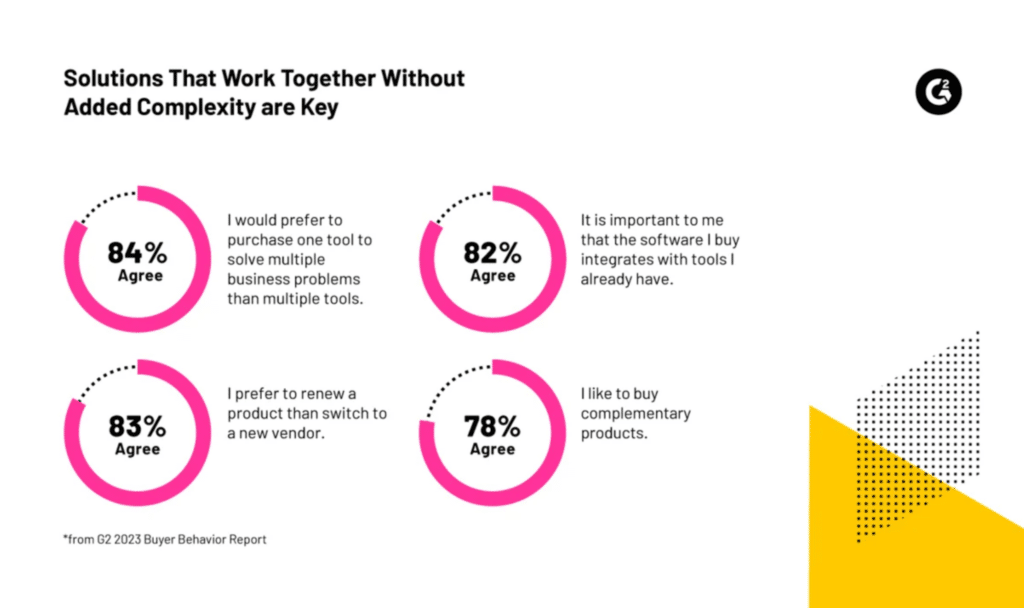
The explosion of modern CRM, Sales Engagement tools and automation is transforming everyday sales life. Tools such as HubSpot, Lemlist, Apollo and Outreach automate time-consuming tasks, allowing salespeople to concentrate on high value-added activities. The modern salesperson must master his or her digital stack to remain competitive.
Effective use of a CRM can increase sales by up to 29%, sales productivity by 34% and forecast accuracy by 42%, according to a Nutshell study. Yet sales reps still spend an average of 70% of their time on things other than active selling (Salesforce State of Sales).
The main challenges are automated tracking of interactions, intelligent follow-ups based on prospect behavior, and automated nurturing of cold leads. By automating repetitive tasks such as data entry, automated prospecting or emailing sequences, this time can be refocused on customer relations.
Case in point: an SDR intelligently using its automation stack (CRM + email sequences + automatic data enrichment) can save up to 20% time on administrative tasks, enabling it to make more prospecting calls and significantly increase the number of opportunities generated.
74% of salespeople expect AI to transform their business by 2025 (HubSpot, 2024). 83% of sales teams that have integrated AI have seen their sales increase over the past year, compared with only 66% of teams without AI.
#2 Know how to sell remotely and multi-channel
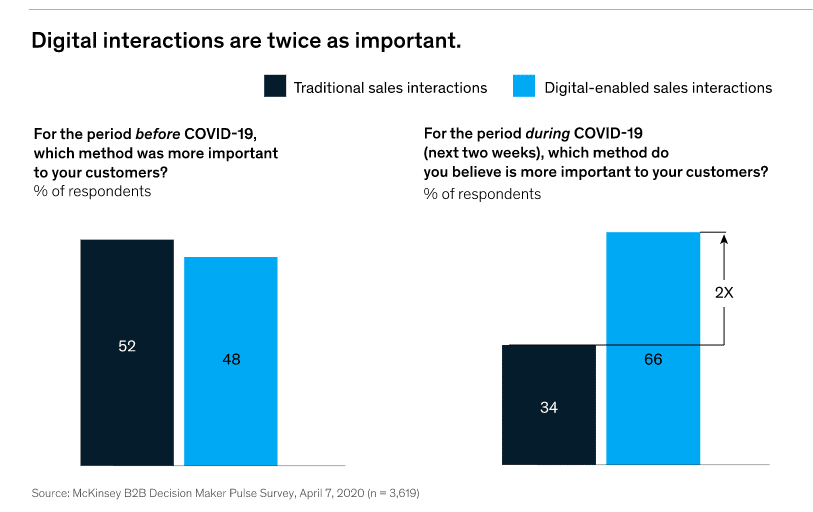
Hybrid selling has become the norm, combining videoconferencing, telephone, LinkedIn, WhatsApp and physical meetings. The modern salesperson must master the specific codes of each channel to optimize his or her approach according to the context and preferences of prospects.
90% of B2B sales organizations consider their hybrid/remote model to be as good or better than before the pandemic (McKinsey, 2021).
On the other hand, customers are multiplying their points of contact: the average B2B decision-maker uses 10 channels to interact with suppliers, twice as many as five years ago.
Key skills include professional posture in videoconferencing, soft follow-up via social selling on LinkedIn, and consistent multi-touch follow-up across all channels. You need to adapt your discourse according to the medium: more direct on the phone, more relational on social networks, more structured in presentations.
The effectiveness of omni-channel sales is reflected in the bottom line. Companies that excel in omnichannel sales achieve EBIT growth of 13.5%, compared with just 1.8% for their less digitalized competitors. 71% of B2B buyers are even willing to spend more than $50,000 via a fully remote sales model.
#3 Working with a data-driven approach
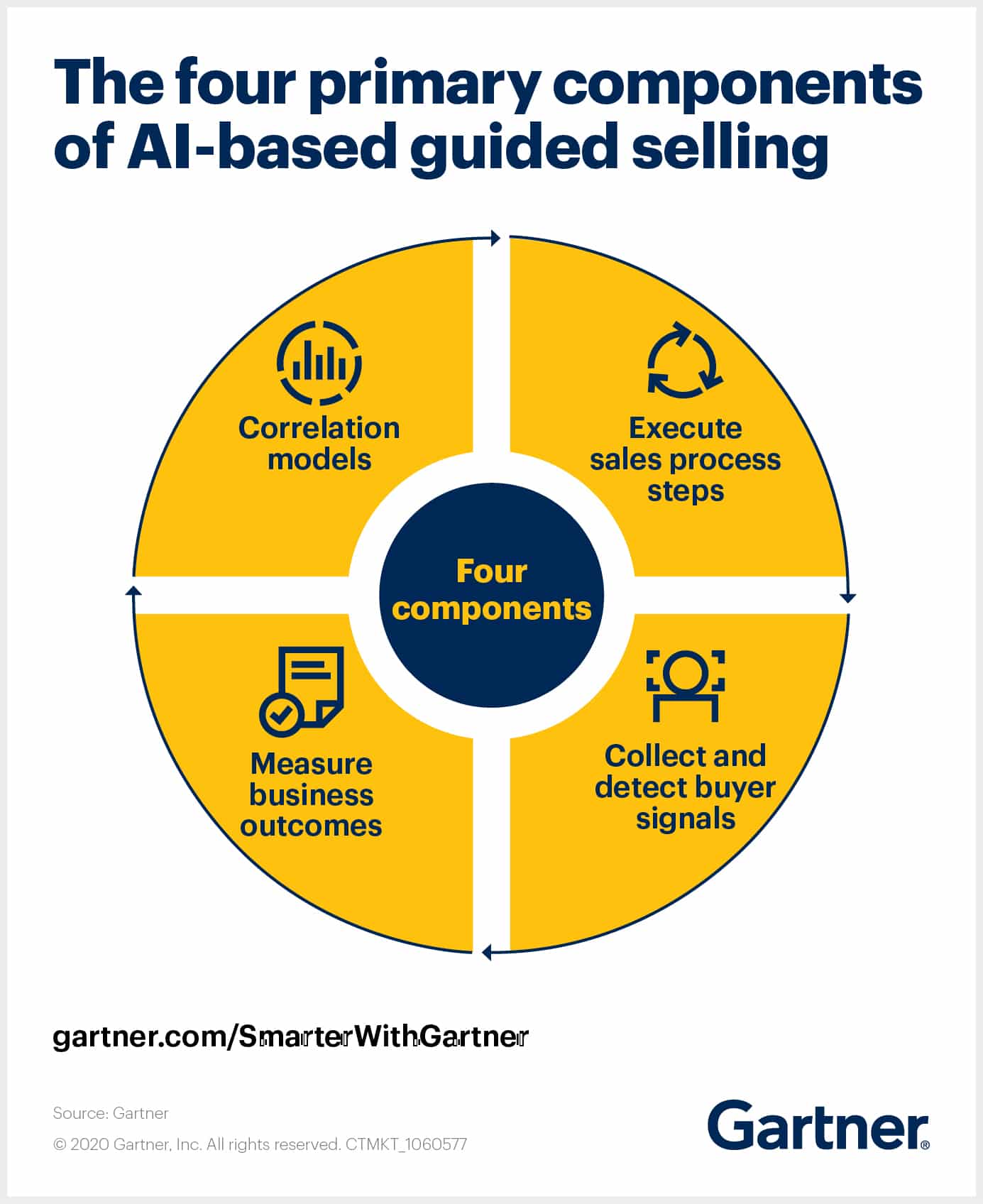
Key sales KPIs include transformation rate per funnel stage, deal velocity, average sales cycle and average contract value. Knowing how to read these metrics to steer your pipeline is becoming a critical skill for any modern salesperson.
Data-driven performance management is based on sales ops tools, real-time dashboards and CRM-integrated business intelligence solutions. These tools make it possible to quickly identify bottlenecks and adjust strategy accordingly.
A survey of 591 salespeople indicates that customer understanding supported by data analysis is considered the most essential skill for sales success, cited by 88% of respondents (LinkedIn State of Sales).
Top performers combine commercial instinct with analytical piloting. They spend a lot of time updating and leveraging their CRM to focus their efforts on deals identified by the data as having the highest probability of closing. This approach enables them to intelligently prioritize opportunities according to their real potential.
Concrete benefits include more accurate sales forecasts, optimization of efforts on the most promising accounts, and early detection of dropout risks. B2B leaders combining advanced sales technologies and personalized analytics are twice as likely to see their market share grow by more than 10% annually.
A concrete example: the creation of a data-driven sales ops team in an industrial company resulted in a 30% gain in sales productivity and 5% market share in four years. However, only 35% of salespeople say they have full confidence in the accuracy of the data they have at their disposal (Salesforce), underlining the importance of data quality.
#4 Develop advanced sales techniques
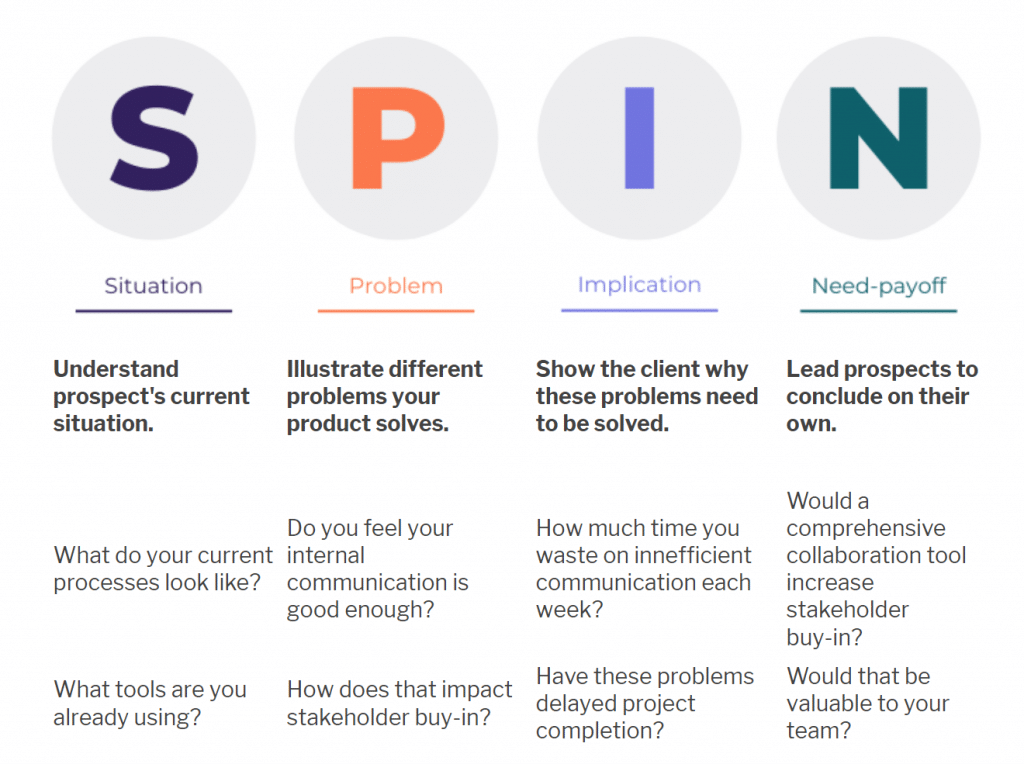
In a competitive environment, the product pitch is no longer enough. Complex methods such as Challenger Sale, SPIN Selling or MEDDIC are used to structure the sales approach and significantly increase conversion rates.
Structured methodologies bring measurable results. Companies that follow a formalized sales process are 33% more likely to be among the top performers in their sector(Sales Management Association). Adoption of qualification frameworks such as MEDDIC results in increased win rates of up to 37%.
When it comes to complex sales, these structured sales methods make it possible to navigate this complexity by rigorously qualifying each stage.
A study by Pipedrive reveals that 54% of the best salespeople in complex sales mainly adopt the Challenger profile.
This profile involves teaching the customer something new about their business, tailoring the message to their specific needs, then taking control of the sales conversation. Conversely, only 7% of top performers focus first on Relationship Builder, which turns out to be the least successful profile in complex sales.
Challenger Sale is based on a sales typology identified by CEB (now Gartner) after analyzing thousands of salespeople. This study defined 5 sales profiles:
- The Challenger (teaches and challenges)
- The Relationship Builder
- The Hard Worker
- The Lone Wolf (working alone)
- The Problem Solver.
The SPIN Selling method, developed by Neil Rackham in the 80s, is emblematic of what is known as consultative selling, which is becoming a standard in B2B sales.
The MEDDIC method is also increasingly used to qualify buyers – and in particular, the members of a buyers’ committee.
These techniques are integrated into sales training courses that combine theory, practical application and personalized coaching. 82% of the most successful sales teams attribute part of their success to the adoption of a common methodology, underlining the importance of structured, continuous learning.
#5 Cultivating differentiating soft skills
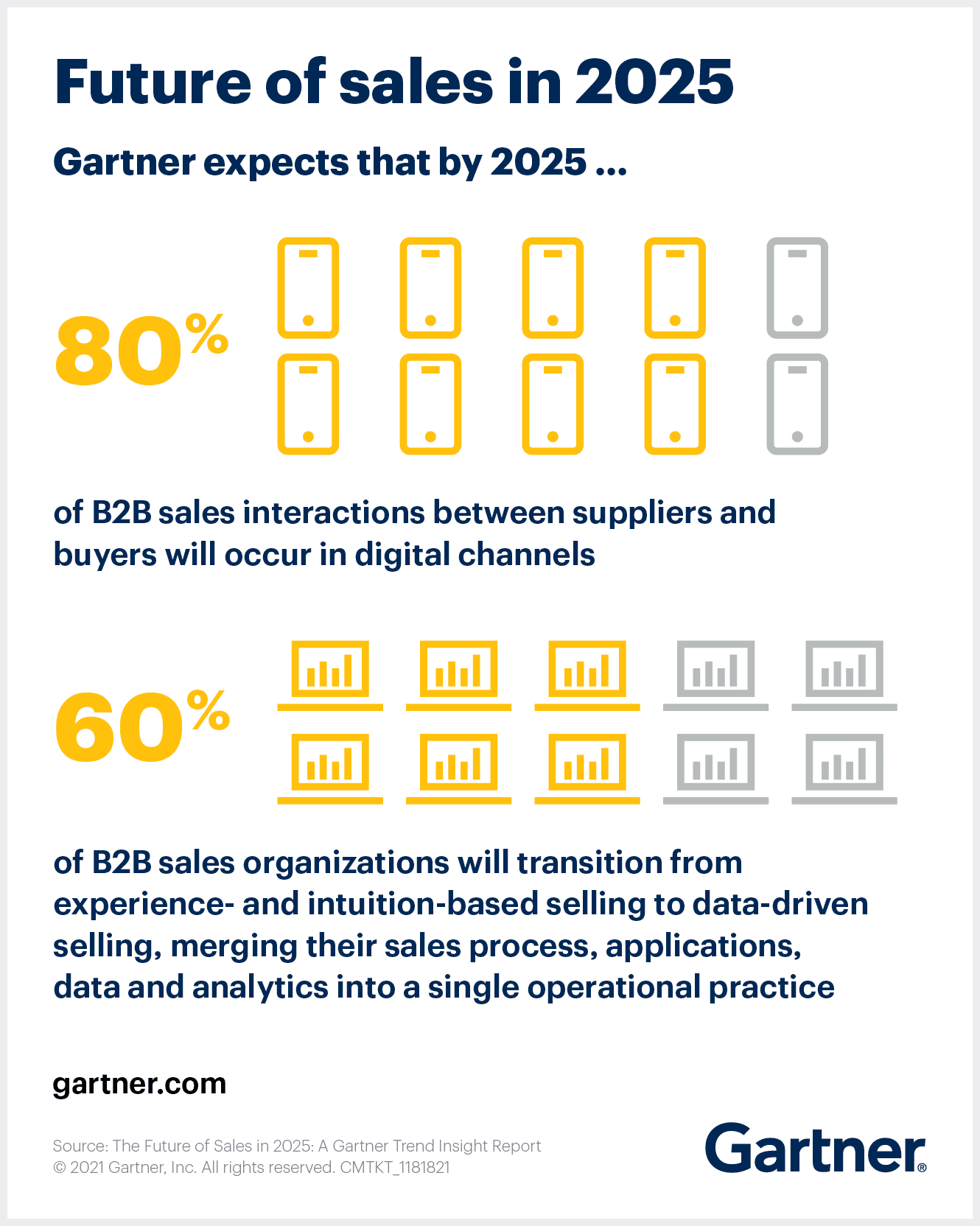
Active listening, adaptability, emotional intelligence and perseverance are becoming major success factors in an era of homogenized products and data. These soft skills are more difficult to train than technical skills, but also more differentiating in the long term.
Only 43% of B2B buyers say they generally trust salespeople, but 87% trust their regular salesperson with whom they have built up a relationship (LinkedIn). This differential underlines the fact that trust is earned through exemplary soft skills: honesty, listening and reliability.
84% of business customers expect a salesperson to act as a trusted advisor who truly understands their issues (Salesforce). Unfortunately, 59% feel that most salespeople don’t take the time to really understand them, hence the crucial importance of active listening and genuine curiosity.
The importance of a growth mindset and continuous learning is particularly critical in the face of adversity. 67% of sales people don’t expect to reach their annual quota, and 84% didn’t reach it the previous year. In this demanding environment, only those who show resilience, learn from their failures and maintain a growth mindset succeed in making lasting progress.
These skills are developed through concrete methods: individual coaching, regular feedback and role-playing. Active listening is practiced through simulated customer discovery interviews, where the sales assistant learns to ask open-ended questions and rephrase to demonstrate empathy.
A French survey ranks listening as the number 1 soft skill, deemed decisive by 66% of respondents, followed by adaptability (54%) and emotional intelligence. These qualities enable us to better understand the customer’s tacit needs and personalize our approach according to the context and personality of the person we are talking to.
Case studies show that in complex negotiation situations, salespeople with high emotional intelligence are able to defuse tensions and create a climate of collaboration, leading to more satisfying and lasting agreements. The growth mindset, popularized by Carol Dweck, can be observed in top salespeople who constantly seek to improve themselves through coaching and ongoing training.
Faced with these rapid changes, many companies are choosing to professionalize their sales teams by relying on specialized partners. This is particularly true ofUptoo, an expert in sales performance, which offers tailor-made training programs designed to generate immediate impact in the field. These programs combine concrete methods, personalized coaching and results-oriented practical application.
Structuring a solid skills development plan ensures sustainable growth for the company and for each salesperson. Prioritizing the mastery of SalesTech tools, the art of remote selling, the intelligent use of data, advanced sales techniques and differentiating soft skills, means giving your team all the means to perform in an ultra-competitive market. Investing in these skills is a direct investment in profitability.
That’s all there is to it!





